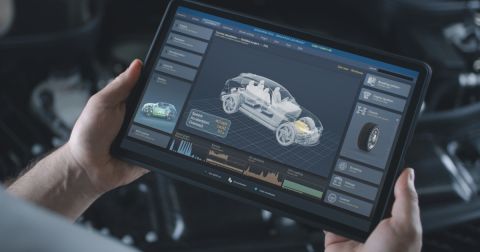How to Involve Customers in PCB Product Development

If you’re a freelancer and you’ve led or managed a complex PCB design project, the need to involve your customer in the product development process may not be obvious. Your customer is probably a project manager at a bigger company, so they’ll be overseeing the progress of the project and leading communication with you. If you work on a small team or as part of a large organization, involving customers in product development can be time-consuming, but it’s essential to success.
The more complex the product gets, the more involved your customer will need to be to ensure you’re designing to their requirements. When you’re using a data-sharing system that integrates with your PCB design tools, it’s easy to give your customers visibility into the product development process. Altium gives you the ability to give anyone access to your PCB projects, including your customers and manufacturer.
Why Involve Customers in Product Development?
Even though some customers can be meddlers and may want to babysit your design team, there are real benefits to keeping your customer constantly in the loop. I regularly always try to loop in my designers into relevant communication from customers so that there is no ambiguity in communication. Here are some reasons to keep your customer involved in the PCB development process with a set of data-sharing tools:
- Your team can get clear design requirements. This usually starts with emails and phone calls, but it eventually filters down to the PCB layout phase. Your team can get clearer requirements when customers can become more involved in the early stages of schematic design and layout.
- Feedback happens quickly. Anytime a design requirement is violated or changes are needed, the customer can easily flag these for the design team. You won’t have to rely on email chains, chat programs, or manual documentation to keep track of feedback.
- Feedback goes in both directions. Feedback doesn’t just flow from the customer to the PCB designers. Your design team can also pose questions directly to the customer and flag portions of a design for inspection.
- You can control access and editing privileges. I’ve had customers that sometimes want to jump in and edit a design anytime they choose, and they’ll inevitably screw up something in the design. Being able to control access and editing privileges prevents a lot of headaches from hands-on customers.
- Your team can be agile. Streamlined communication between your design team and customers helps your team stay agile. They can quickly react to required design changes, and there is less ambiguity in required changes.
If this type of collaboration is so critical to project success, why has it traditionally been so difficult? Designers have their design tools, sharing platforms, communication tools, and design data in separate applications. Altium is changing this dynamic and offers a number of tools that let you collaborate on PCB design projects in the cloud.
Sharing Data with Viewing Privileges
Getting your customers involved in PCB product development starts with giving them access to your project with viewing privileges. Atium makes this easy through a web interface.
Involving customers in PCB product development starts with sharing project data and granting viewing/editing privileges in Altium.
Implement Feedback with Commenting Tools
Once a project is shared through Altium, designers and customers can work through questions, schematic/layout design issues, and design requirements within design documents. Comments are attached directly to components or regions in the design, ensuring feedback and communication are clear.
Design changes can be tagged directly in a PCB layout by a customer or designer. Your customer and design team can then resolve design issues in a comment thread within Altium.
Send Projects for Manufacturing with Managed Releases
Once your team has addressed feedback and comments and your customer has approved any design changes, you can send a complete PCB project release to your manufacturer.

Share and Store It on Altium
Regardless of your ECAD software, Altium makes it easy to bring customers and collaborators into the PCB design process. Altium's requirements and systems capabilities are invaluable for tracking, refining, and implementing complex design requirements efficiently. This powerful combination allows you to share PCB project data with other designers, your customers, manufacturers, embedded developers, and anyone else that has a stake in a project.
As the electronics industry starts onshoring mode design and manufacturing capabilities, design teams will need to find new ways to stay at peak efficiency. Cloud-based design collaboration tools with access and revision control features have a major role to play in this transformation, especially as more teams go fully remote. Altium is another tool in your collaboration toolbox to help you share design data, track revisions, control access to projects, and manage data all in one place.
Whether you’re working remotely or you’re in the office with your design team, Altium, together with its requirements and systems management capabilities, makes collaboration and sharing easy. Get the tools you need to involve customers in product development and create a productive PCB design workflow today!













 Back
Back